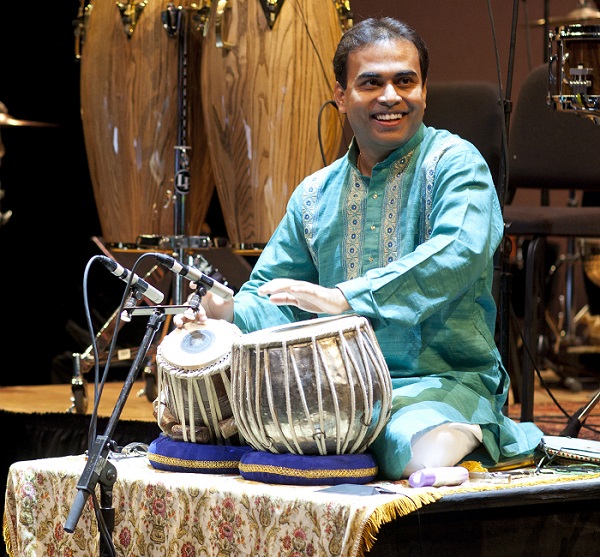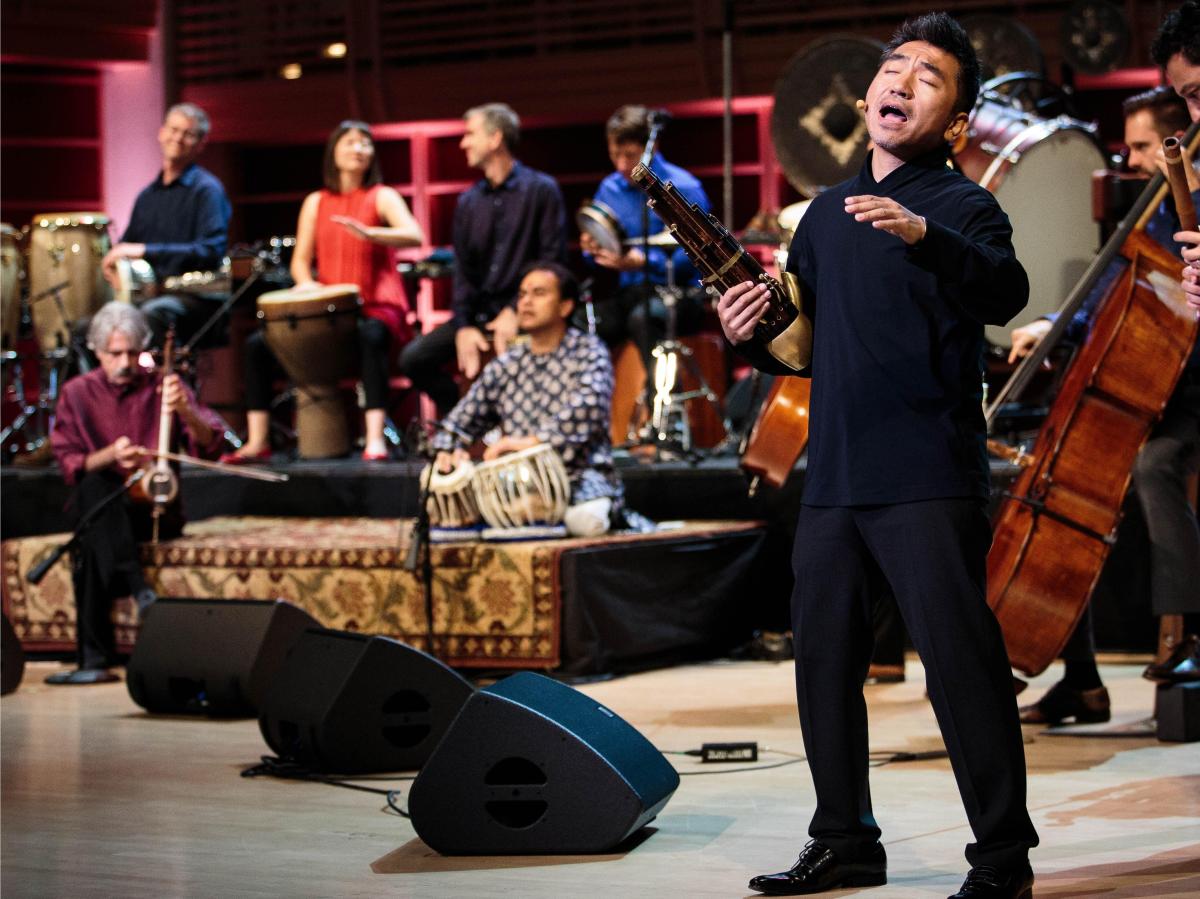The Silkroad Ensemble with Silkroad’s Wu Tong. Photo by Max Whittaker
Conceived as a means by which musicians from all genres and backgrounds could work together in a productive cultural collaboration, Silkroad Ensemble is named after the route of the ancient Silk Road, which connected east and west, helping facilitate an exchange of ideas, as well as culture, arts and music. It is therefore an apt name for the vision of the Ensemble, the performers who are chosen and the works they perform.
An eclectic group of nine musicians comprise the current Ensemble that is undertaking its first Australian tour. Including Indian tabla, Chinese sheng and suona, Galician bagpipes, a range of percussion and the dark strings of viola, cello and double bass, the Ensemble presented music of their individual cultural heritages as well as a melange of pieces fusing cultural differences, the latter in some thought-provoking ways.
The concert opened with a fiery Fanfare. Cristina Pato’s extraordinarily high-pitched and piercing gaita bagpipes from north west Spain took on the Suona Chinese organ of Wu Tong in a playful exchange. This provocative conversation, with players gliding towards each other across the front of the stage, instruments and voices blaring, created some magical moments eliciting spontaneous applause. This boded well for an entertaining evening where the unusual rather than a traditional concert presentation would take place.
There were other excellent pieces across the 90-minute concert with exemplary musicianship from all the players who seemed passionately committed to the ideals of Silkroad. Much of what they played appeared to be improvised, as apparently no two concerts are ever the same. Yet, on almost every level, this was a slickly produced standard concert program, disappointingly so, as more risk and innovation would have been welcome.

Silkroad’s Sandeep Das. Photo by Todd Rosenberg.
While it is always difficult to single individual players out of such a talented group, the newest member of the Ensemble, Nora Fischer, had a luscious, warm soprano that made a big impact in the beautiful arrangement of Dvorak’s ‘Largo’ from the New World Suite. Matching her vocally was the talented tenor of Wu Tong, supported by the dark strings of Jeffrey Beecher’s fine double bass, Mike Block’s daring cello and the excellent violist, Mario Gotoh.
The tabla playing of Sandeep Das in ‘Vairocana’ with Wu Tong on the sheng was well-paced. And Das was equally at home doing a favourite work, ‘Tarang’, where multi-talented percussionists, Mark Suter and Shane Shanahan, joined him in an exchange with the traditional string trio. This was the closest we got to a similar ‘play-off’ of instruments that was so breath-taking in the opening fanfare. Cristina Pato was equally as proficient on piano as she was on the Galician bagpipes, offering some of the best playing of the night both in the final Celestial Suite as well as in the ‘Lamento’ from the Migrations Suite.
Overall though the program seemed muted with many long slow pieces that were down-beat rather than exhilarating. This created a sense of musical sameness, as well as appearing to be self-indulgent. Clearly the players were enjoying themselves but it felt as if the programming choices themselves needed more diversity, perhaps including other instruments and/or players. This was particularly true of the Silkwood, Migrations and Celestial Suites. While the ‘Khabiel’ ending of the Celestial Suite involved all the players in a satisfyingly fast and furious finale, more judicious programming would have made the evening really sizzle.
Rating: 3 ½ stars ★★★☆
Silkroad Ensemble
Presented by QPAC
By arrangement with Arts Projects Australia
Silkroad Ensemble:
Jeffrey Beecher
Mike Block
Sandeep Das
Nora Fischer
Mario Goth
Cristina Pato
Shane Shanahan
Mark Suter
and Wu Tong.
7 March 2019
Concert Hall, QPAC





